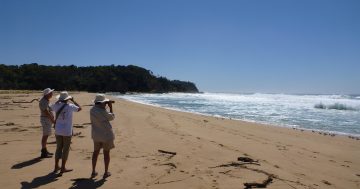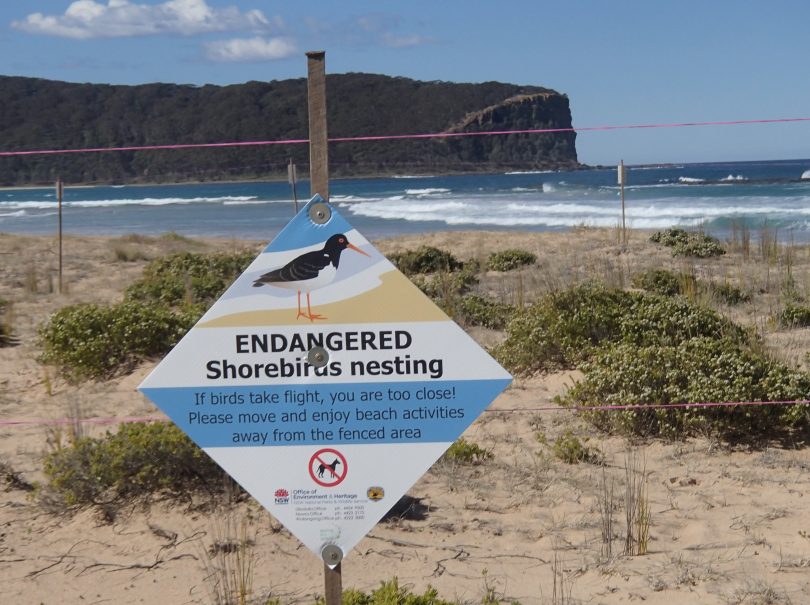
The shorebird recovery program is always in need of more volunteers. Photo: John Perkins.
The winds buffeting the region signal the turning season, along with stone fruit blossoms starting to swell, and the bright brilliant sunshine early each morning.
Endangered shorebirds wanting to breed and establish a nest is the next signal that points to spring in the Eurobodalla and Bega Valley. The National Parks and Wildlife Service (NPWS) is hoping to draw on peoples love of local nature this spring as part of the long-running South Coast Shorebird Recovery Program.
Established in 1999 the aim of the program is to reduce the rate of decline of threatened shorebirds and enhance breeding success.
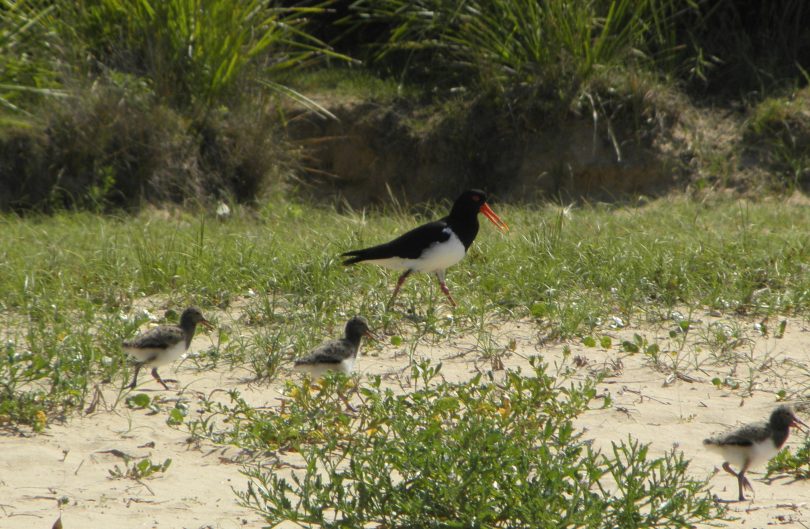
“Having three live chicks is like winning the lottery!” – shorebird volunteer John Perkins. Photo: John Perkins.
NPWS Senior Conservation Planner, Max Beukers, says we hope to get more of the community acting as advocates for these tiny beach-nesting birds from Durras to Merimbula.
“I call it the ‘David Attenborough effect’; as more and more people are enjoying reconnecting with nature, their care factor for their local environment skyrockets,” Mr Beukers says.
“This year, the Shorebird Recovery Program will capitalise on this trend by increasing people’s knowledge of the unique behaviours of these pretty shorebirds and encouraging the local community to help protect them.
“Early spring is a special time of the year. The migratory Little Terns will soon arrive from eastern Asia. Our resident threatened shorebirds, the Pied Oystercatchers, Sooty Oystercatchers and Hooded Plovers are beginning to nest.
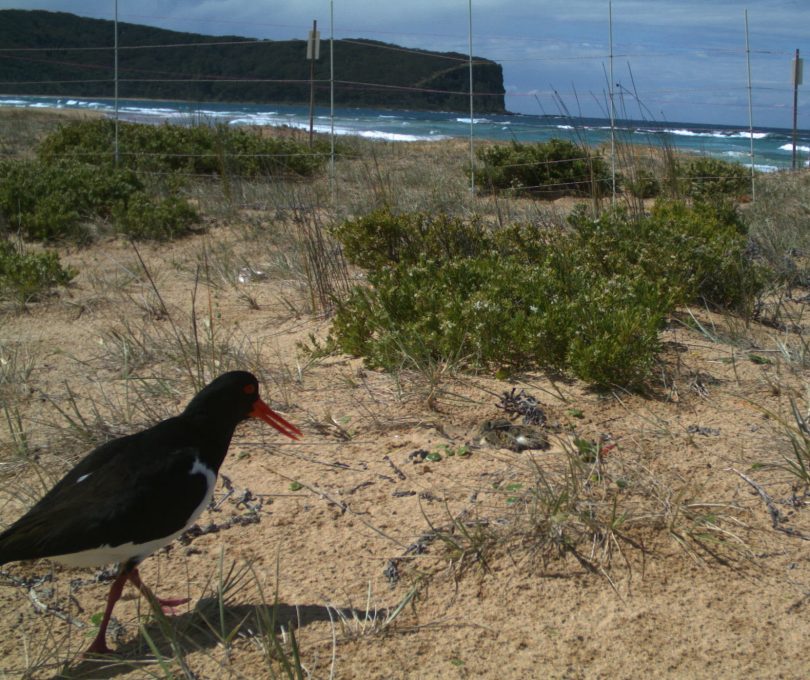
A Pied Oystercatcher. There are fewer than 70 Hooded Plovers, 250-300 breeding pairs of Little Terns and 200 pairs of Pied Oystercatchers in NSW. Photo: John Perkins.
“Nesting is a hugely challenging time for the birds. They are trying to protect the fragile eggs they’ve laid directly on the sand.
“Their nest scrapings that are easily damaged by storms or trampled and disturbed by dogs, vehicles and people. These delicate beach-nesting birds are literally living life on the edge.
“NPWS is working with local Councils and volunteers to share the plight of these birds with all beach goers. We are reaching out to community groups including fishing groups, dog walking clubs, recreational water users, surf life-saving clubs, caravan park users and bird-watching groups.
“We’re asking the community to give the birds space and to keep dogs leashed in shorebird areas. NPWS and volunteers will be fencing off breeding areas, putting up signs and monitoring the birds to help people give their eggs and little chicks some space.
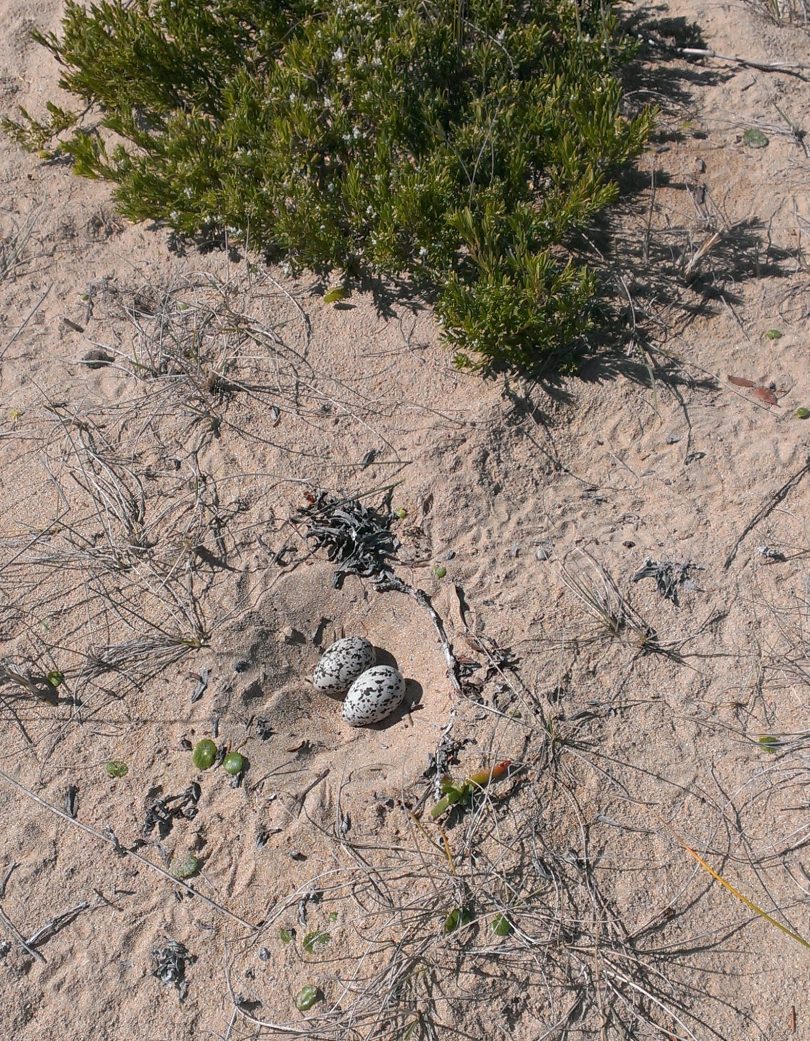
Volunteers and NPWS watch over eggs first and then chicks for the duration of the breeding season every year – for approximately six weeks from early November to early December. Photo: John Perkins.
“These birds are fascinating to watch, particularly during breeding season when they display quirky behaviours such as head-bobbing and faking injuries. Adult birds will work in pairs, one will stay by the eggs whilst the other ‘lookout’ bird will steer predators away, even pretending injury, dragging a wing across the sand as a distraction.
“Every time an adult bird is disturbed away from their eggs, they waste precious energy stores. Too many disturbances and eggs may not hatch and the young will not thrive. Often a breeding pair will produce three clutches of eggs but sadly, only one egg will survive to leave the nest as a fledgling.
“We’d like the community’s help in spotting nesting shorebirds, and if you see any, please let your NPWS team know via 1300 361 967,” Mr Beukers says.
Check the Shorebird Recovery Program website for more.
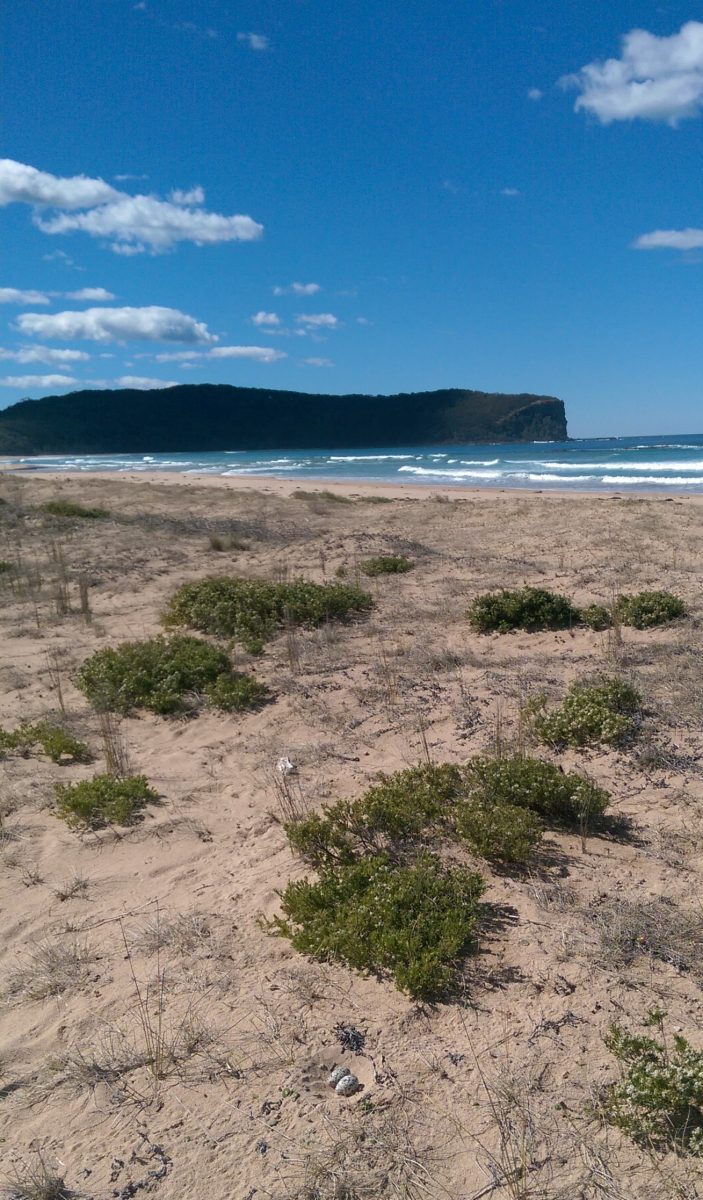
Although ground-nesting birds are vulnerable to animal predators such as foxes, cats, snakes and goannas, the biggest threat to these bird populations is humans and domestic dogs. Photo: John Perkins.







